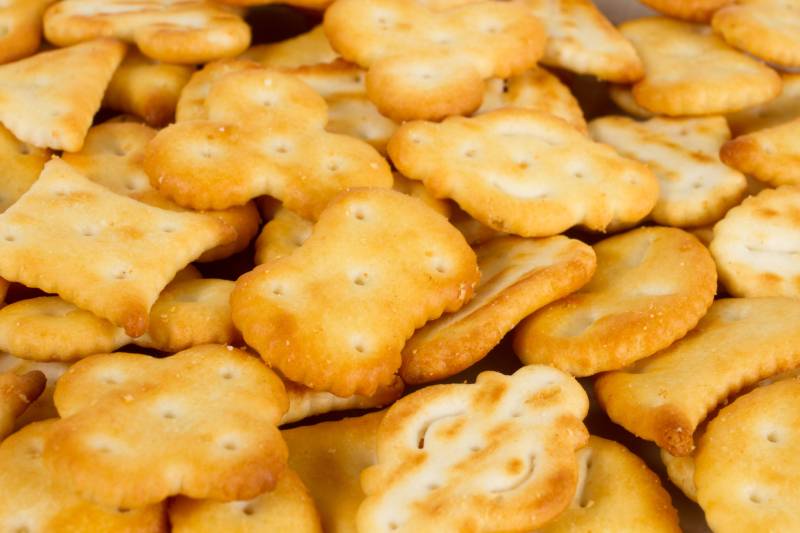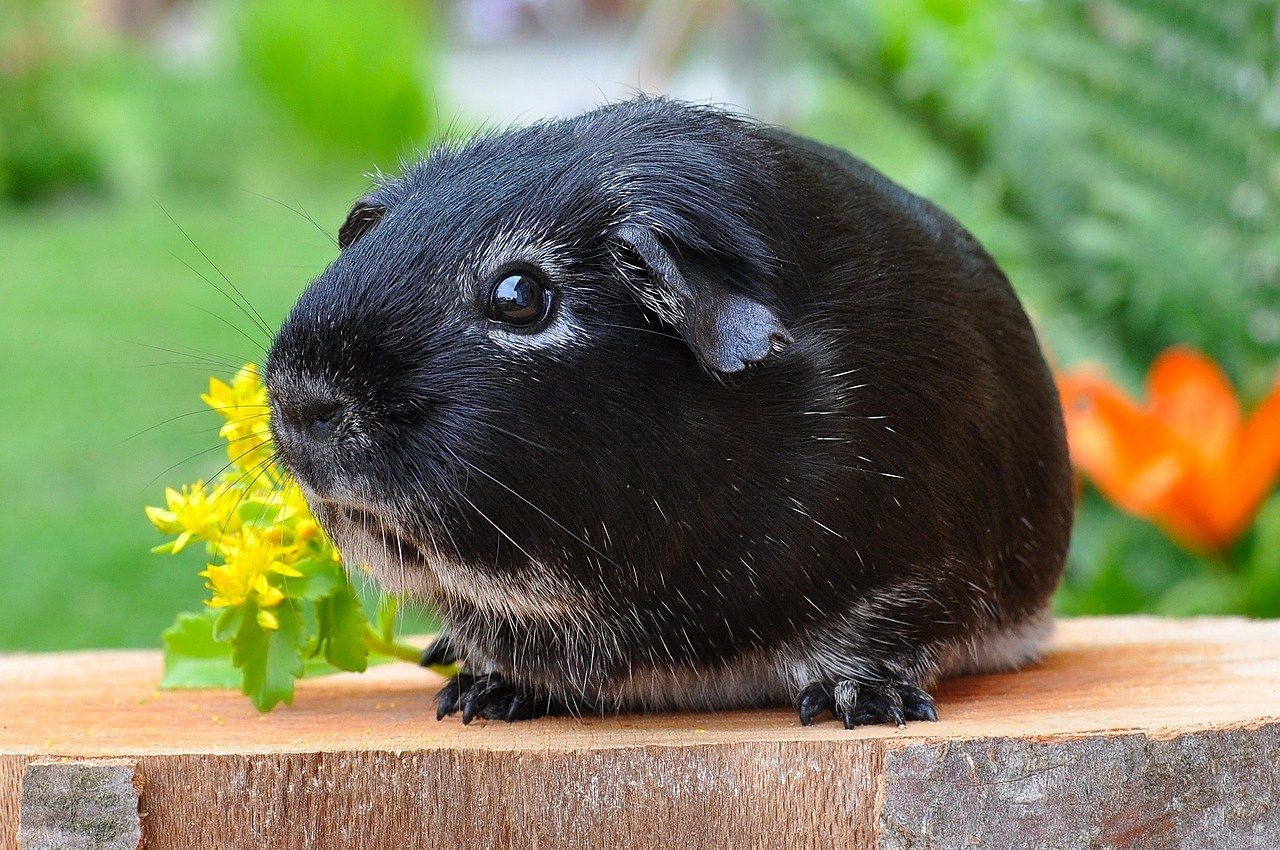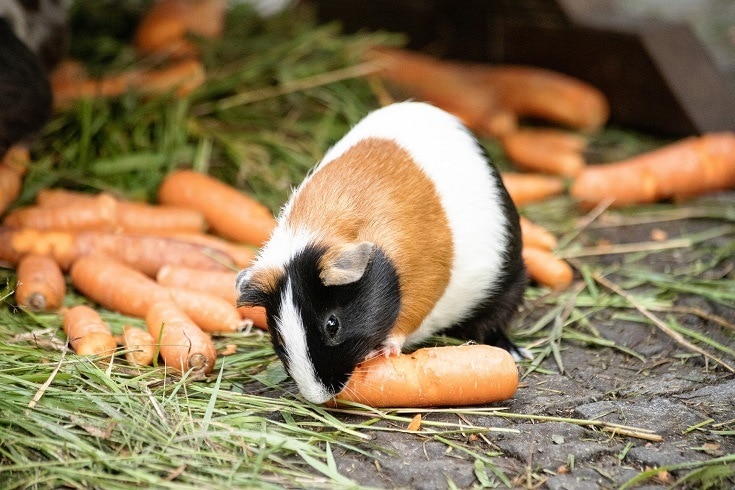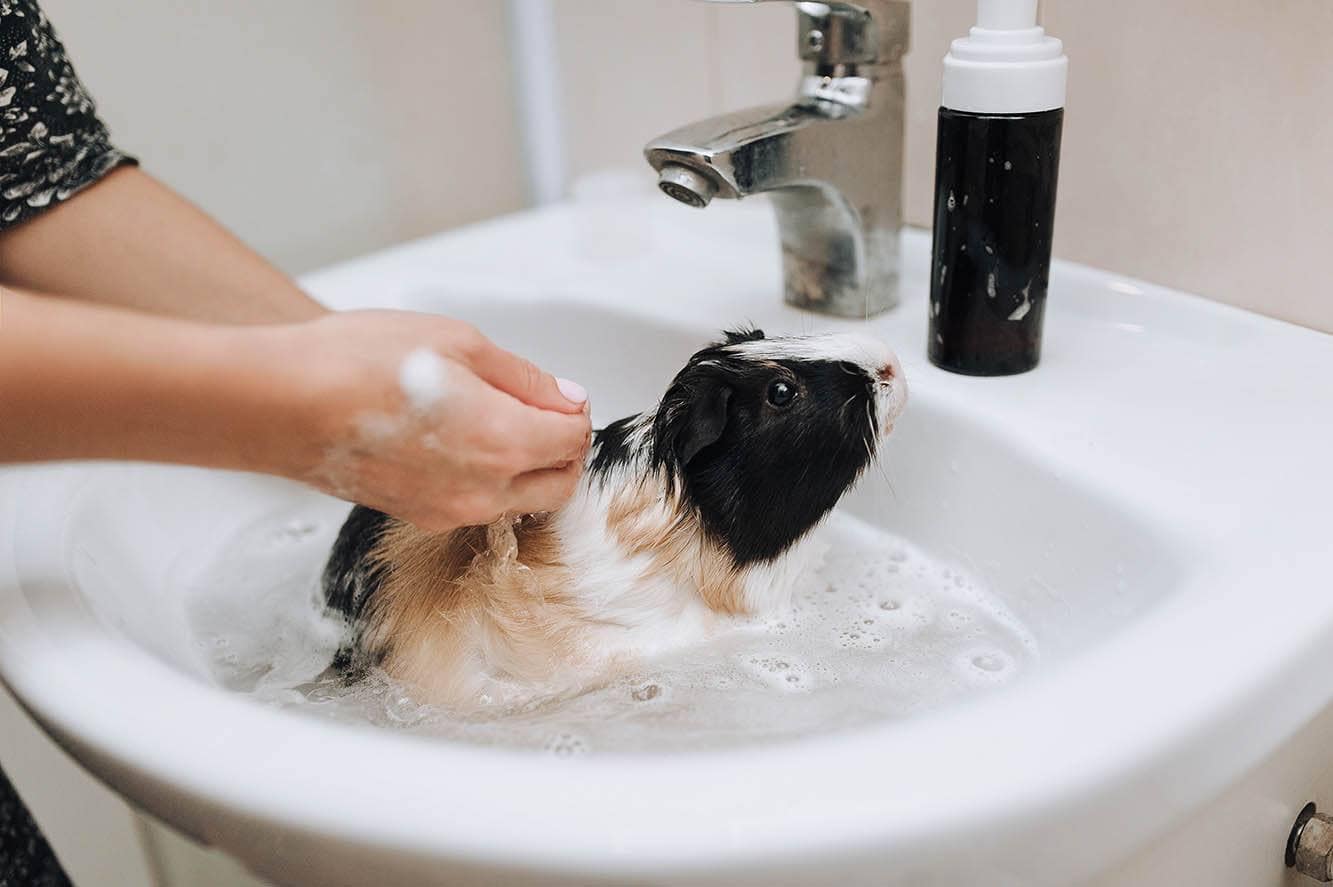
Guinea Pigs are a popular pet in the US, and it’s very easy to see why. Guinea Pigs are full of personality and charm and often start squeaking when they see their favorite treats. They are herbivorous and only eat plant protein and fibers. For a Guinea Pig, veggies and hay are essential to their diet. But what about grains? Foods made with sugar, starch, and grains like crackers aren’t usually toxic to Guinea Pigs, and they technically could eat them, but they really shouldn’t eat them. In this article, we’ll explore why giving your Guinea Pig crackers is bad and what they can enjoy instead.
Are Crackers Bad For Guinea Pigs?
Crackers are made from wheat and contain many processed carbohydrates, sugar, and salt. While Guinea Pigs can eat crackers, they’re not good for them and can cause harm. Because Guinea Pigs have a digestive system specially designed to digest fiber and vegetation, large amounts of sugar, grain, or carbs can upset the gastrointestinal balance.
Crackers are tasty and satiating to us, but Guinea Pigs can’t digest large amounts of processed carbohydrates. If your Guinea Pig sneaks a bite of a cracker, it’s unlikely to cause them any lasting harm. However, larger portions can cause significant digestive issues, which can be severe, and some Guinea Pigs are more sensitive than others.
Even if your Guinea Pig doesn’t suffer any gastrointestinal effects from eating crackers frequently, they’ll begin to put on weight very quickly! Crackers are high in fat and calories. Obesity is highly detrimental to a Guinea Pig’s health and can contribute to the following problems 1:
It’s best not to give your Guinea Pigs any crackers (or other processed foods) to eat since even a small portion can cause gastrointestinal upset.

What Happens When a Guinea Pig Eats a Cracker?
When a Guinea Pig eats a large amount of carbohydrates, they can suffer gastrointestinal issues due to changes in the bacteria that live in their gut or motility problems. Dysbiosis is the term given to a change in bacteria present in the gut, which helps Guinea Pigs digest a fibrous, herbivorous diet. These bacteria are very sensitive to diet changes, and a sudden increase in carbohydrates and sugars (such as those found in crackers) can cause a shift in the bacteria.
Dysbiosis
Dysbiosis is the overgrowth or eradication of certain bacteria in your Guinea Pig’s digestive system. Guinea Pigs are hindgut fermenters, meaning they digest most of their food in the cecum and colon. The cecum is where the bacteria live, and they help digest the large amount of fiber and vegetation Guinea Pigs eat. When Guinea Pigs eat carbohydrates, changes to the pH of the caecum and changes to bacteria levels can cause diarrhea.
Diarrhea might seem like not a big deal, but it is just the beginning of a process that can quickly become life-threatening to your Guinea Pig if you don’t remedy it! The bacteria will struggle to digest the carbohydrates, which disrupts the digestive system, and can cause slowed gut motility, also known as stasis.

Enteritis and Gastric Dilation Volvulus
If your Guinea Pigs are fed more crackers and their gut continues to slow down, changes in the delicate balance of the gastrointestinal system continue. Gas levels can build up and possibly cause gastric dilation, stretching of the stomach, which is very painful and can be fatal.
Enteritis and enterotoxemia can also occur from bacterial changes, as “bad” bacteria can release toxins into the Guinea Pig’s body. Both conditions are severe and can quickly lead to death if not treated, so if your Guinea Pig has eaten crackers and they show any of the following signs, take them to your veterinarian immediately:
Which Snacks Can My Guinea Pigs Eat?
You can feed healthy snacks to your Guinea Pig that’ll satisfy them the same way a cracker satisfies us! Fiber in the form of hay or grass should always be the primary source of your Guinea Pig’s diet, but sweeter vegetables such as carrots or bell peppers are a relatively healthy, special-occasion treat for them. Fruits such as melon are also good as an occasional treat, and they’re full of fiber, water, and vitamins for your pet to enjoy.
Remember that any treats such as those mentioned above count towards your Guinea Pig’s daily rations for vegetation and greens, so it should be adjusted accordingly to avoid overfeeding. Don’t give your pet too many of these treats, as any sudden changes in diet can cause diarrhea.

What About Guinea Pig Snacks and Treats?
Commercially available Guinea Pigs snacks and treats are almost always full of processed carbohydrates, sugars, and fat, so they should not be fed to your Guinea Pig. Your pet won’t miss out on anything, and serving too many treats causes the same problem as feeding them crackers!
Can Guinea Pigs Eat Human Snacks?
The only human foods your Guinea Pigs should consume are fruits and vegetables. Some Guinea Pigs might happily eat bread, crackers, or cheese, but they are not equipped to digest them. Animal proteins such as eggs and dairy are also unsuitable since Guinea Pigs are herbivores without the enzymes capable of efficiently breaking down animal proteins.
Conclusion
Guinea Pigs have a specialized digestive system that’s not designed to process large amounts of carbohydrates and sugar. The processed carbohydrates in crackers can overload their gastrointestinal tract and cause bacterial imbalance or reduced gut motility. Both conditions are dangerous and may require your Guinea Pig to be hospitalized. For a healthier treat, consider serving “sweet” vegetables, such as carrots or bell peppers.
Featured Image Credit: Mike Kuhlman, Shutterstock








